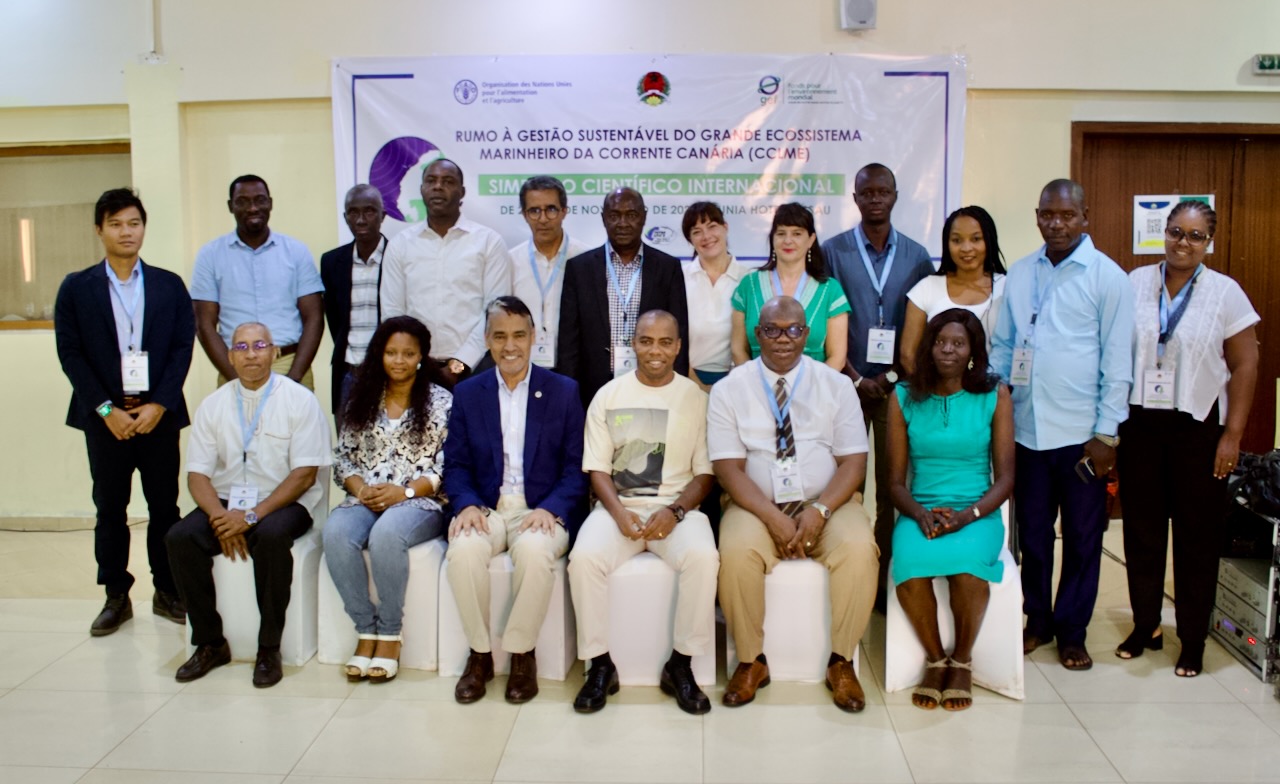The 3rd Steering Committee Meeting of the CCLME Project

©Ibrahim HAMA
The meeting began with a speech by the Permanent Secretary of the Sub-Regional Fisheries Commission (CSRP), Dr. Khallahi Brahim, highlighting the successful collaboration between FAO and CSRP in the preparation and implementation of the first phase of the CCLME project. He emphasized the crucial importance of collaboration among member countries to address the challenges of fisheries management and environmental issues in the region.
In his opening speech, Dr. Iça Barri, Director of the National Institute of Fisheries and Oceanography (INIPO) of Guinea-Bissau, expressed gratitude to all participants. He underscored the crucial importance of this meeting to assess concrete achievements, challenges faced, and the forthcoming challenges in the implementation of the second phase of the CCLME.
The various presentations and discussions during this meeting shed light on significant progress made within the project framework. Among the key conclusions, the Steering Committee commended the impeccable organization of the meeting by the Regional Coordination Unit of the CCLME and expressed satisfaction with the progress made in project implementation. A request was made to finalize the table of activities by adding a column specifying the nature of the deliverables obtained for each activity.
The Committee also endorsed the recommendations of legal advisors from the ministries responsible for fisheries and marine environment in CCLME countries to establish a partnership consortium for the implementation of the CCLME SAP. The development of the multisectoral financing strategy was noted with interest, emphasizing its crucial importance for mobilizing financial resources in the next phase of the CCLME.
A special mention was made regarding the imminent planning of the final evaluation of the project, with a call for full collaboration from all CCLME countries to ensure the success of this evaluation. The RCU was tasked with centralizing all documents and reports produced within the project, making them accessible via the FAO's SharePoint, while emphasizing that these documents would be for exclusive internal use to achieve the CCLME's strategic objectives in each country.
The Steering Committee strongly encouraged the Technical and Financial Partners of the CCLME to enhance their collaboration in the implementation of their respective activities contributing to the sustainable management goals of the CCLME. Additionally, it expressed the firm commitment of CCLME countries to actively participate in the preparation and implementation of the second phase of the CCLME, seeking technical and financial support from FAO in this endeavor.
The meeting proposed that FAO be the implementing agency and CSRP be the executing agency for the second phase of the CCLME if there is no objection from Morocco. A request was made to the RCU to draft a message on behalf of the Steering Committee highlighting the success of this intermediate phase, the momentum created, and the commitment of CCLME countries to the preparation and implementation of the second phase of the CCLME.
In conclusion, the results and recommendations from this meeting outline a promising roadmap for the future, emphasizing the ongoing commitment of CCLME countries and their partners to the preservation of marine resources and environmental sustainability in the region.